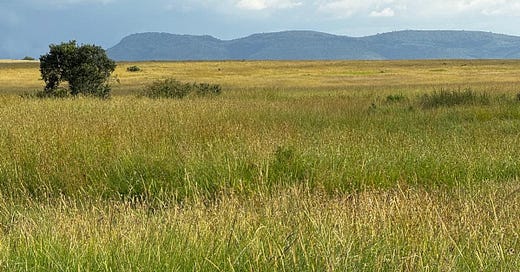Reflections on Kenya
I wrote a blog a while back on my experience in India, and my perception of culture and society. I want to do the same for Kenya.
Cuisine
Food in Kenya is delicious and straightforward, with a focus on natural flavors of local ingredients. The trifecta of Kenyan cuisine is ugali (a paste made of corn meal), sukuma wiki (stewed kale), and nyama choma (grilled meats). There are quite a few other local specialties. I particularly enjoy “wet-fry” fish, a fried tilapia or white-meat fish stewed in a spiced tomato sauce, “anti-theft,” (a delicious marinated meat), and pilau (spiced rice). People also eat a lot of beans and chapati. They have a special ginger-honey-lime tea, called “dawa” that is soooo delicious and great for fighting a cold. I also tried some local palm wine and fermented honey drinks. The tropical produce here is amazing. Local vegetable sellers will give you 13 small mangoes or 4-5 large mangoes for $1 USD, and avocados are even cheaper. I made friends with many local vegetable sellers outside my apartment, and admit that I have consumed an entire Kenyan pineapple in one go.
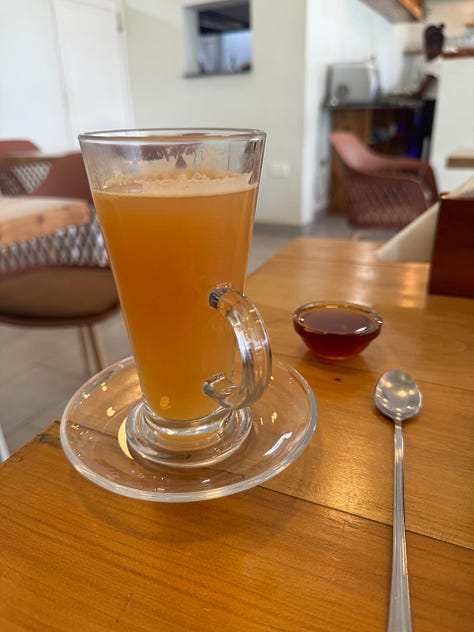
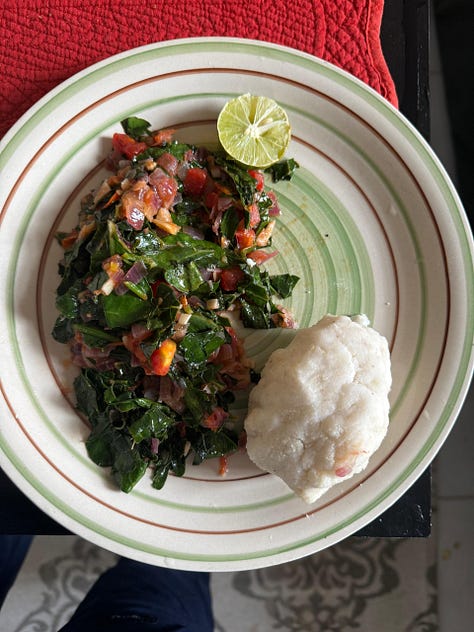
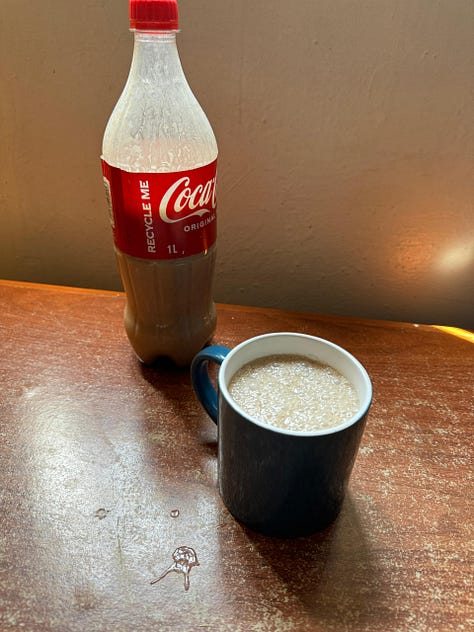
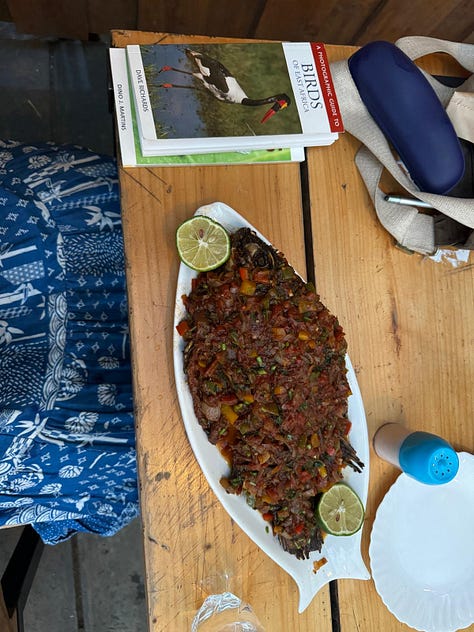
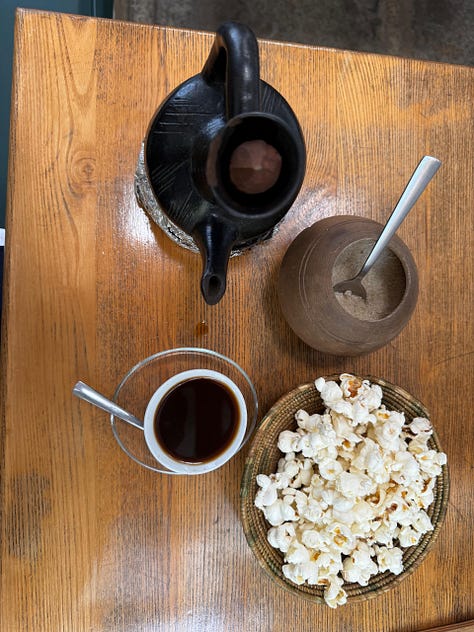
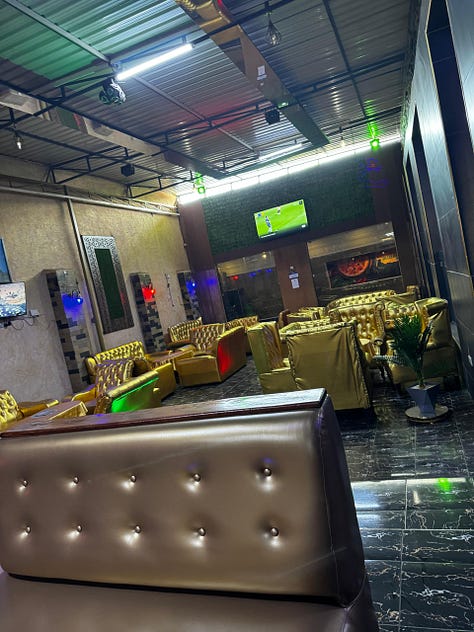
Restaurant culture in Nairobi is a lot of fun. There are foods from around the world (especially a lot of fusion foods), with many West African, Chinese, Western, and Indian places. Many places have live music bands playing in the evening hours.
“Western cuisine” doesn’t refer to European/ American food; it’s Western African food! I don’t know if it’s just the places I went, but West African restaurants all gave night club/ lounge vibes. I went to four different West African restaurants, and I’m pretty sure I saw a pimp at 50% of them. The video below was taken at 8am at a speakeasy behind a quaint little fruit stand. When I asked the grocer about a breakfast place, I was guided past the wooden walls and a blanket door to find a fully furnished restaurant with a bar. How I didn’t hear the music from outside, I will never know.
Society
The first thing I noticed about Kenyan English is that they speak in poetry. Kenyans can be quite straightforward, which can come across as harsh. However, I find their honesty refreshing since I can’t always read subtle social signals in a foreign culture. I call the Kenyan communication style, “sassy poetry.” The moment I arrived to the immigration gate, I handed the woman my passport in a holder. She held it and looked at me with eyebrows raised.
“Now, why is it that you have handed me an entire bag?”
“My passport is in there.” I responded.
“Please, take this from my sight and give me your passport only.”
On another occasion, when I told a taxi driver that I am studying snakebites, he let out a high-pitched “Uuuuh!” and, shaking his head, “I hope you do not meet death from a snakebite in Kenya.”
I thought that “Hakuna matata” was a made-up phrase from the Lion King (embarrassing, I know), but it’s actually Kiswahili (AKA Swahili), the Kenyan national language. People tend to be pretty relaxed, really embracing the “hakuna matata” mentality. At one point, I arrived to the wrong airport and found out only an hour before my flight. I grabbed a taxi from one side of Nairobi to another, eyes full of tears as I imagined I had lost the money from my plane ticket and would have to navigate a night bus. I explained my situation, begging him to fly through the express lane. The whole way over, he was telling stories, humming cheerily and zipping through traffic. I ran into the airport, only to have the security guards joking with me.
“Helloooo late girl! The plane has left, you are stuck in Nairobi... Just kidding! We will board you, mzungu [mzungu means white person], hakuna matata,” they told me as I huffed and puffed, sweaty from my run. “Just don’t come late next time.”
This “airport” was one room with a cafe, and a handful of propeller planes out front. Happy-go-lucky African rumba played in the air, and I immediately relaxed.
Also, music and dance is everywhere in Kenya! In little shops, I found attendants just grooving to afrobeats while tending the till. Matatus (buses) blast RnB, reggae or Afrobeats. Music unites people, and it seems to flow out of many nooks and crannies here.
Stereotypes
It was interesting to speak to people about stereotypes. I wasn’t aware of the stereotypes about Kenya, mostly because I have so little exposure to information about the African continent in general. I am guilty of imagining the whole of sub-Saharan Africa as a Serengeti (with fewer animals), dotted with few big cities. Of course, there are plenty of other natural biomes besides dry grasslands; Kenya has a sparkling coast, mountainous regions, dry forests and even patches of tropical rainforest.
In Maasai mara, lions, giraffes, zebras and other “Lion king” animals are no joke everywhere. But outside of these nature reserves, there aren’t lions just walking around urban areas. Driving around Kenya, it was fun to casually drive past wild zebras and giraffes. I even saw a wild secretary bird, a huge majestic bird of prey that lives near lakes.
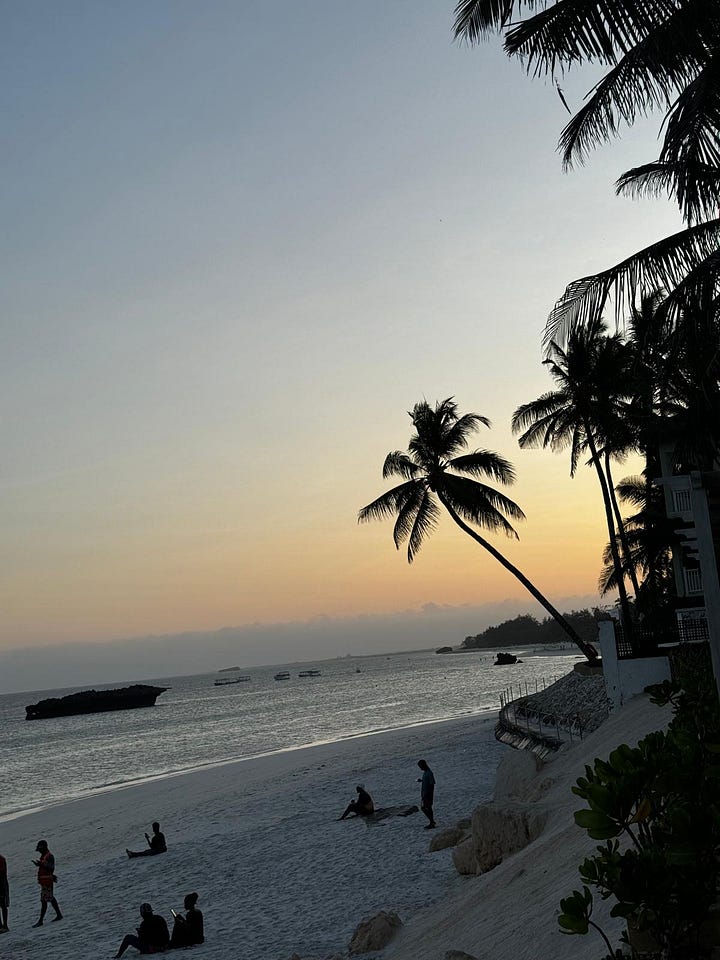
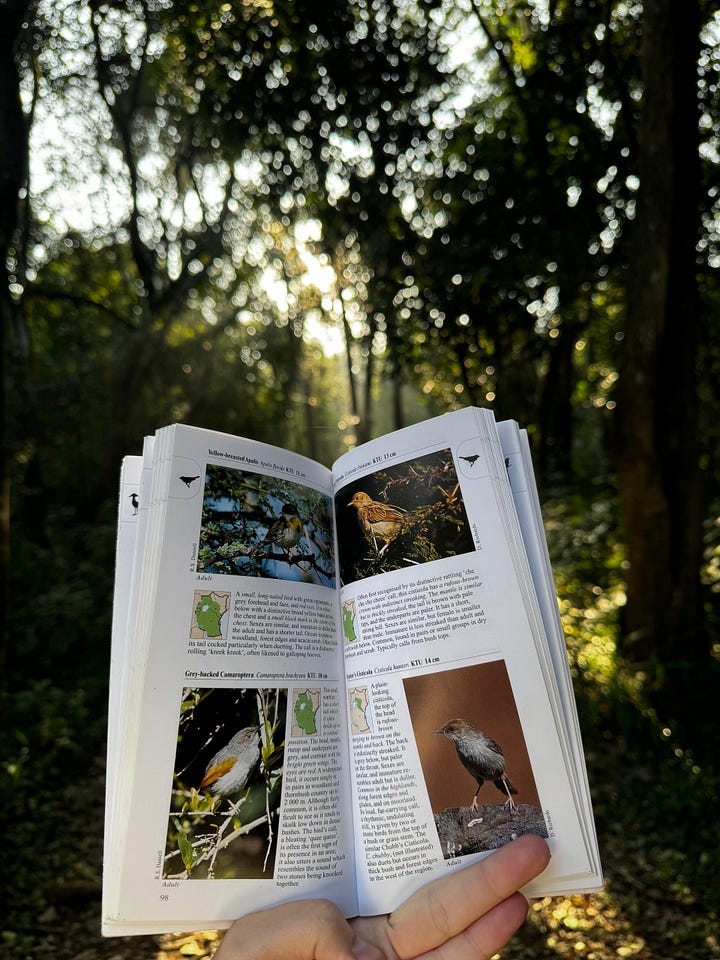
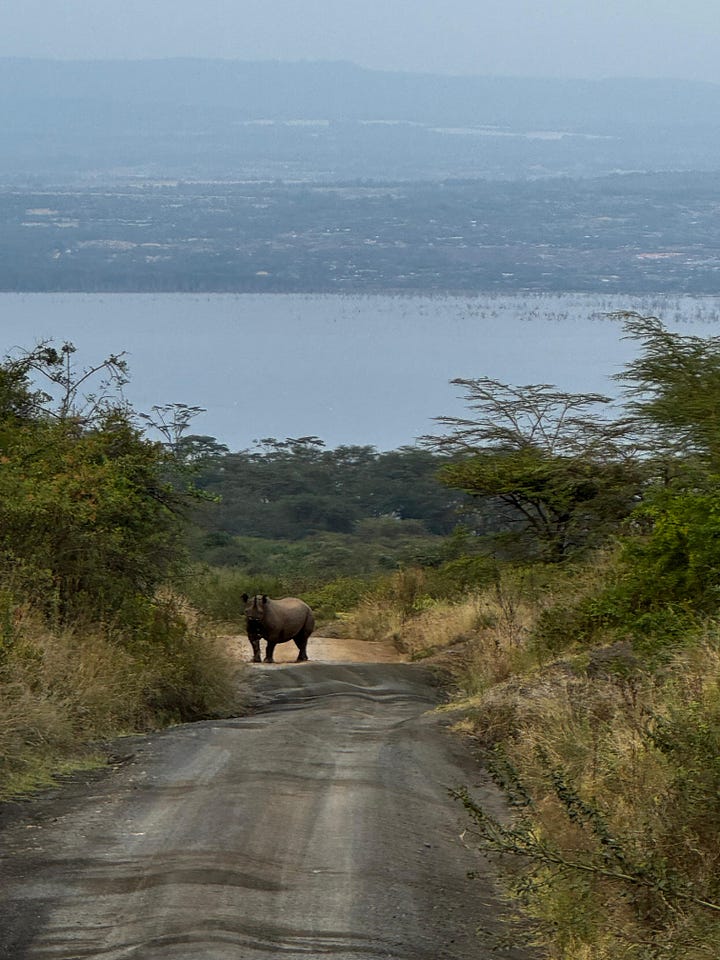
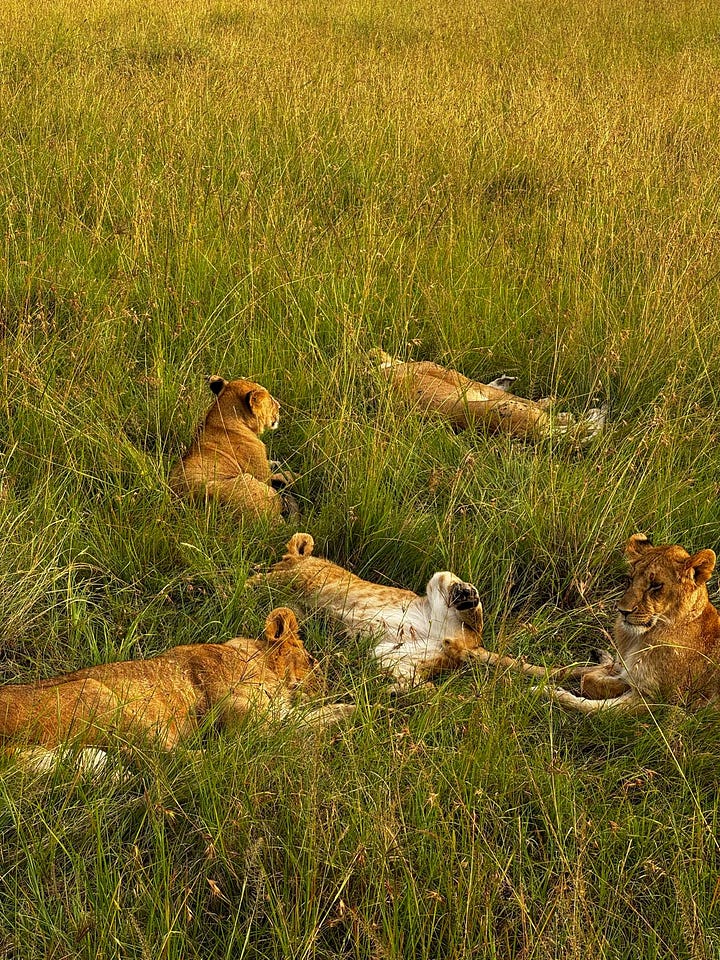
As you’ve likely gathered from this blog, many people still experience poverty. However, the cities offer wealth and a “modern” life for a growing urban population. Tourism and wildlife, especially, are goldmines. Kenya is also much stabler and has much more functional institutions than neighboring countries. So, don’t make the mistake of grouping Sub-Saharan Africa together; Kenya is nothing like the DRC or South Sudan.
Kenya is known for runners. The population seems fit, and I did see a lot of joggers, but it’s not like Kenyans pop out of the womb as supernatural athletes.
Race is a funny thing. One friend told me that many (less urbanized) Kenyans don’t necessarily differentiate between lighter-skinned expats; they’re all mzungus.
“Indian, European, American, Chinese, they’re the same for us; they’re mzungu. We only know that small eyes are Chinese, and round eyes are European,” a friend smiled.
I asked friends about stereotypes about mzungus. Here’s what they said:
“We think that mzungu have unlimited money. If their laptop gets stolen, its okay because they’ll just get another one the next day.”
“If you see a mzungu, it’s a sign that they’ll bring you something good, some money or even a chance to go to another country.”
“Many people respect and listen to mzungu, even if we don’t know them or it’s not really merited. They can just come and say anything, and people will listen.”
(one girl, laughing) “I know that some white people think that Africans are monkeys. I’m not offended, I think they’re just confused and ignorant. We have made the same mistake; some people actually think mzungu may be related to pigs, because they’re pink. My mom said that they smell like pigs. I remember when I first had a colleague from Europe, and she smelled really nice.”
“Some Kenyans worry about mzungu skin in the sun. We think it will burn and even melt off, so that’s why they need so much skin cream.”
“Some people think that Africans are stupid or weak. Actually people sometimes play dumb or make themselves look vulnerable because they know that mzungu are suckers, and they’ll give money.”
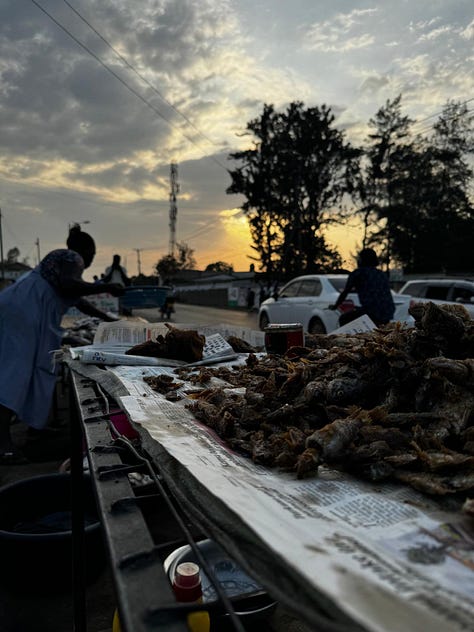
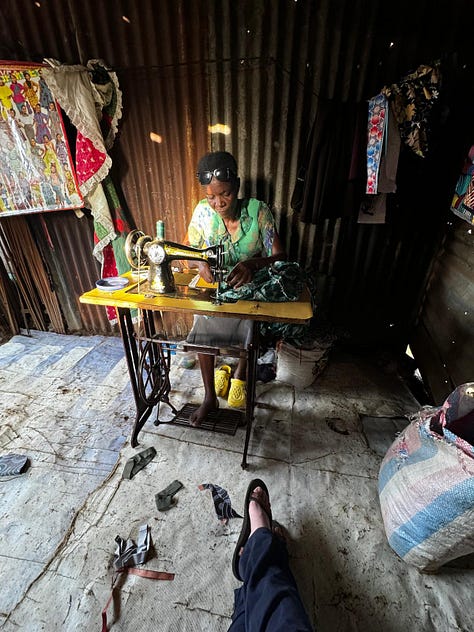
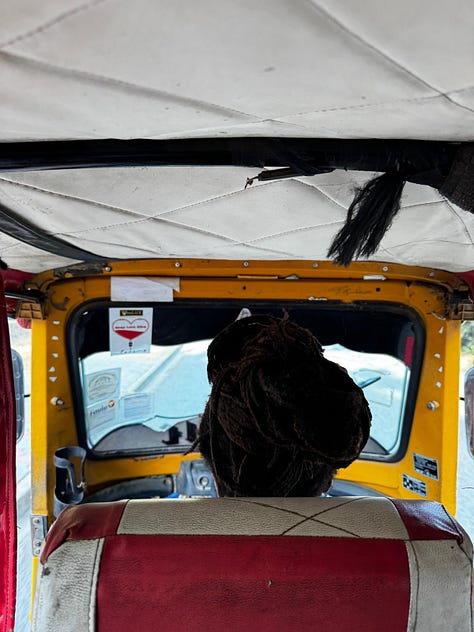
Romantic relationships
I had a few conversations with Kenyan friends about romance in the country. Kenyans traditionally marry young, although this is changing nowadays.
Kenyan women take care of themselves; they’re fashionable, with cute, manicured updos and nails. They sit straight and walk with an elegant stride. Some male friends explained that they see Kenyan women as gold diggers, and this self-care is their “marketing ploy.” They doll themselves up in hopes of attracting the wealthiest possible partner. Men should have financial ability to provide for a woman, because she will gauge his love by his ability to buy her the most luxurious brands or the most beautiful house. My male friends felt that this materialistic culture was a result of rapid Westernization and a capitalist society.
On the other hand, my lady friends (and even guys) explained that many Kenyan men aren’t loyal. They may have children with one woman, then leave her for another. One Kenyan meme asks ‘on a scale of one to 10, how married are you?’. Meanwhile, many young women are single mothers.
A male friend joked, “kind of married, or married married… they’re different. It’s normal to keep browsing while you’re in a relationship.”
On Valentines day, I watched a beautiful lady sit alone, hands folded elegantly as she waited for her partner, who had left her alone. My gal friend told me that this is a normal thing for some Kenyan men. Some guys just disappear for long periods of time mid-meal.
When expats come into the question, it’s similarly complicated. Power dynamics are strong. On the coast, huge European populations come in with great wealth. It’s not uncommon in Mombasa or Watamu to spot a middle aged Italian man with a young, beautiful Kenyan lady (or vice versa!). One expat expressed that he finds it hard to know whether Kenyans are actually interested in him or they just think he’s a gateway to a better life. A young Kenyan gal friend felt disinterested in potential Western partners because of the cultural divide and a strange power dynamic.
Safety and security
Throughout this section, keep in mind: I was mostly living and walking alone, and staying in local working class neighborhoods on the outskirts of Nairobi and other cities (budget travel, but don’t worry I’m being safe). So, if you’re planning to travel to Kenya with friends/family and stay in hotels, city centers, and touristy areas, your experience will probably be different.
In Kenya, I can definitely feel my foreign-ness. Walking down the street, children and vendors call out, “mzungu mzungu!” It’s pretty cute and funny but it’s also a constant reminder that I am an outsider. Some welcome me to Kenya, many ask for money, or ask for something I’m carrying (food, water). I ended up being a banana supplier for the local children on my street, maybe accidentally feeding into this expectation of handouts. My observable status as an American (or European) attracted a lot of men’s attention, including multiple guys who would yell out “Hello, future wife! Take me to America!” When I took motorcycle rides around town, other vehicles would stop beside me to try and make conversation.
I never felt at risk of being attacked; people’s intentions weren’t violent. Rather, I feel like many Kenyans on the street saw me as glimmer of opportunity for some small benefit; fruit, some spare change, a tip on immigration to the US, etc. This bombardment was a reminder of the difficulties of life in Kenya for the working class. It was a bit tiring, though. At some point, I just wanted to make local friends who did not see me as a resource (and I did! I ended up becoming good friends with the partners I visited).
Petty theft is definitely a risk in Nairobi and across Kenya. If I pulled out my phone on the motorbike or in the taxi with the windows down, drivers would immediately warn me that someone would come and steal it. People warned me that I should avoid the front and back seats of local buses (matatus), in case people tried to rob me or grab something.
All that being said, Kenya is generally quite safe. It’s good to pull out your street-smarts, but Kenya has less violent crime than some neighboring countries.
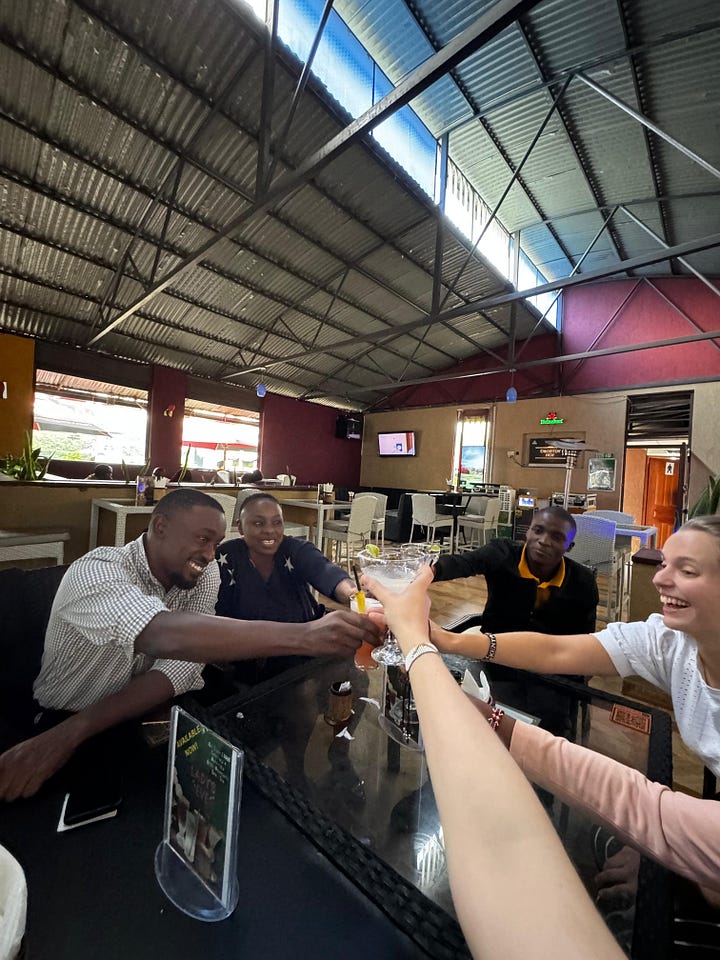
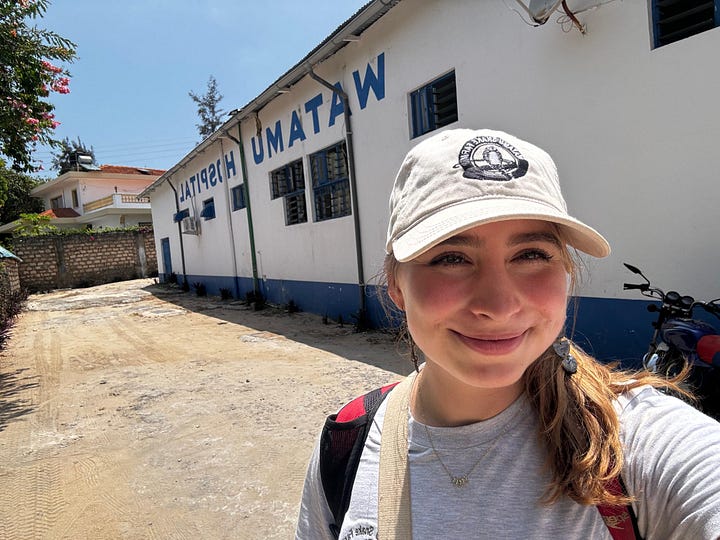
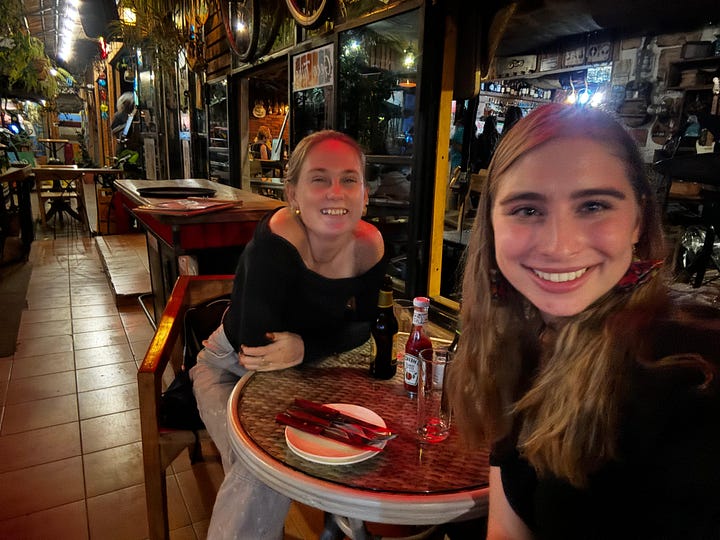
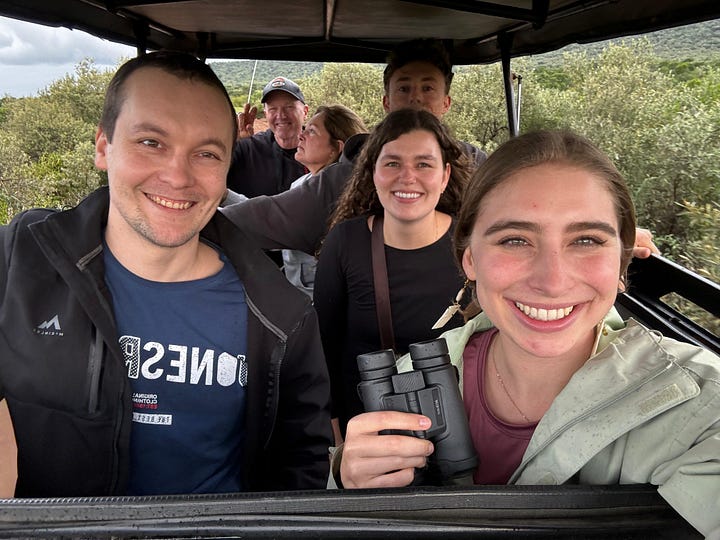
Fun facts!
There are many people groups in Kenya, with vibrant cultures and traditions. The Maasai people, found in South-west Kenya and Northern Tanzania, were historically known as warriors. Ethnic Maasai clothes include red cross-hatch drapes, colorful beaded jewelry and gauges to stretch their earlobes. They have a famous courtship tradition (Adumu) where young Maasai men jump as high as they can in a rhythmic, competitive dance. Traditional coming of age ceremonies require young boys to undergo a ritual where they are left in a forest overnight, and must kill a lion. In today’s age, as one Maasai friend put it, a young boy becomes a man by studying hard and getting a good job. Like the rest of the world, traditions are changing as times change. Below, you can see a modern rendition of traditional Maasai dance, performed at a hotel for (and with) visitors.
Similarly to India, most Kenyans use a mobile phone-based money transfer service called M-PESA. Everyone uses M-PESA, from malls to rural goat milk sellers on the side of a highway. In fact, using cash is quite difficult because many people won’t carry change. Luckily, I was able to register for M-PESA and this made everything easier.
It’s super easy to get around the country on “boda bodas,” motorcycles. You can stop them to get a ride from the street, or use Uber. I loved zipping around, and could get across town for a dollar or two.
Kenya’s demographics vary a lot from town to town, telling it’s story. Kikuyu, Luhya, Kalenjin, Luo and many other ethnic groups have rich heritage and traditions that are still practiced today. Along the coast, Arab and Swahili populations are a testament to Indian ocean trade. In the same towns, significant portions of the population are expats from Europe. Some menus in Watamu were even written in Italian. Many parts of the country also have Indian influence; in the late 19th century, the British brought over indentured servants from South Asia to construct the Uganda railway.
Takeaways
Kenya is such a beautiful country, full of welcoming people. I highly recommend travelers to visit, especially if you enjoy wildlife, history and music. It’s fairly easy to navigate for English speakers, and there’s so much rich culture and heritage.
